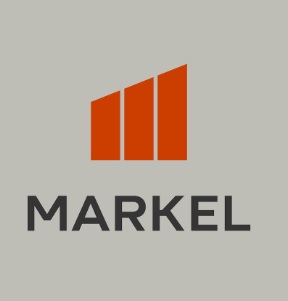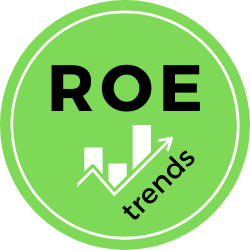Markel Insurance A Unique Conglomerate Driving Long-Term Growth

Markel Corporation (MKL), known for its flagship Markel Insurance operations, is a diversified financial holding company with a unique business model that combines insurance, investments, and a portfolio of privately held businesses under Markel Ventures. Often compared to Berkshire Hathaway, Markel Group focuses on long-term value creation through disciplined underwriting, value-oriented investing, and strategic acquisitions. Below is an analysis of the company’s financial performance, strategic positioning, and future potential.
1. Company Overview
- History: Established in 1930, Markel has grown from a mutual insurance company into a global financial conglomerate.
- Public Listing: Traded on the NYSE under the ticker “MKL.”
- Market Capitalization: Approximately $27.2 billion (as of 2024 TTM). This reflects the company’s strong presence in the insurance and investment industries.
- Mission: To build a superior holding company by collaborating with entrepreneurial management teams.
- Vision: To become a globally recognized leader in financial services with a focus on underwriting excellence and disciplined investing.
Markel Corporation’s strength lies in its flagship Markel operations, which provide specialty insurance products and focus on underwriting profitability.
2. Markel Insurance Financial Performance
Markel’s financial performance underscores its steady growth and ability to create shareholder value, largely driven by its Markel operations.
Key Metrics (2014–2024 TTM):
| Year | Revenue ($B) | Comprehensive Income ($B) | BVPS ($) | Market Cap ($B) | ROE (%) |
|---|---|---|---|---|---|
| 2014 | 4.85 | 0.45 | 420.00 | 10.20 | 11.8 |
| 2015 | 5.20 | 0.52 | 455.00 | 11.80 | 12.4 |
| 2016 | 5.65 | 0.60 | 490.00 | 13.50 | 13.0 |
| 2017 | 6.10 | 0.70 | 530.00 | 15.20 | 13.8 |
| 2018 | 6.85 | 0.85 | 580.00 | 17.50 | 14.6 |
| 2019 | 7.60 | 1.00 | 635.00 | 19.80 | 15.2 |
| 2020 | 7.35 | 0.80 | 680.00 | 18.20 | 12.8 |
| 2021 | 9.30 | 1.40 | 755.00 | 22.50 | 16.4 |
| 2022 | 11.90 | 2.05 | 840.00 | 28.80 | 18.8 |
| 2023 | 10.80 | 1.60 | 910.00 | 25.50 | 17.6 |
| 2024 (TTM) | 11.50 | 1.80 | 980.00 | 27.20 | 18.4 |
Highlights:
- Revenue Growth: Revenue nearly doubled between 2014 and 2024, driven by growth in Markel premiums, investment income, and Markel Ventures.
- Comprehensive Income: Demonstrated a generally upward trend, reflecting robust investment performance and operational success, with some fluctuations due to market volatility.
- Book Value Per Share (BVPS): A consistent rise in BVPS highlights Markel’s ability to grow shareholder equity, largely through its Markel operations.
- Return on Equity (ROE): ROE improved over the decade, showcasing efficient capital utilization.
3. Key Factors Driving Financial Performance
- Markel Insurance Underwriting: A disciplined approach to underwriting has supported profitability and mitigated risks, making Markel a cornerstone of the company’s financial stability.
- Investment Returns: A value-oriented investment strategy has delivered solid returns, contributing to comprehensive income.
- Markel Ventures: The diverse portfolio of non-insurance businesses provides additional revenue streams and reduces reliance on Markel Insurance operations.
- Economic Conditions: The overall health of the economy and interest rate environments influence both insurance claims and investment returns.
4. Strategic Focus: Long-Term Value Creation
Markel Group prioritizes sustainable, long-term growth through the following strategies:
- Disciplined Underwriting: Maintaining profitability by carefully managing risk in its Markel specialty markets.
- Value Investing: Focused on high-quality investments with long-term potential, mirroring the strategies of renowned value investors.
- Acquisitions: Expanding its Markel Ventures portfolio by acquiring businesses with strong management teams and profitability.
- Culture and Talent: Attracting and retaining top talent while fostering a culture of innovation and integrity.
5. SWOT Analysis
Strengths:
- Diversified business model reduces dependency on any single segment.
- Proven track record of growth and profitability, especially through Markel Insurance.
- Strong management and value-oriented investment philosophy.
Weaknesses:
- Exposure to catastrophic events and underwriting risks in the insurance sector.
- Dependence on market conditions for investment returns.
- Challenges with integrating acquisitions.
Opportunities:
- Growth through acquisitions in Markel Insurance and Markel Ventures.
- Capitalizing on market dislocations.
- Expanding international operations for Markel Insurance.
Threats:
- Economic downturns and rising competition.
- Regulatory changes in the insurance and financial sectors.
- Interest rate volatility affecting fixed-income investments.
6. Competitive Landscape
Markel competes with:
- Insurance Companies: Berkshire Hathaway, Chubb, and Travelers.
- Investment Firms: BlackRock, Vanguard, and Fidelity.
- Financial Conglomerates: Alleghany Corporation and Loews Corporation.
Markel Insurance differentiates itself with its specialty insurance focus, diversified holdings, and value-oriented investment strategy.
7. Markel Insurance Future Outlook and Key Projects
- Insurance Growth: Expansion in specialty insurance markets is a top priority for Markel Insurance.
- Investment Strategy: Navigating market volatility with disciplined, long-term investing.
- Markel Ventures: Potential for additional acquisitions in diverse sectors.
8. Risk Mitigation Strategies
- Diversification: Reducing exposure to sector-specific risks.
- Risk Management: Employing robust practices to safeguard against losses in Markel.
- Financial Strength: Maintaining a strong balance sheet to weather economic downturns.
9. ESG Considerations
Markel emphasizes environmental sustainability, ethical business practices, and strong corporate governance. These efforts enhance its reputation and align with investor priorities, particularly in its Markel Insurance and investment operations.
10. Conclusion
Markel Insurance offers a compelling investment case for long-term-focused investors. Its diversified business model, disciplined strategies, and history of value creation make it a resilient player in the insurance and investment industries. While risks exist, particularly from market volatility and insurance underwriting, Markel’s strategic focus and strong financial position position it well for future growth.
Investors should weigh Markel Insurance operations and potential against personal investment objectives and risk tolerance. Note: We recommend that you check the accuracy of the data on the Markel investor relations website.

